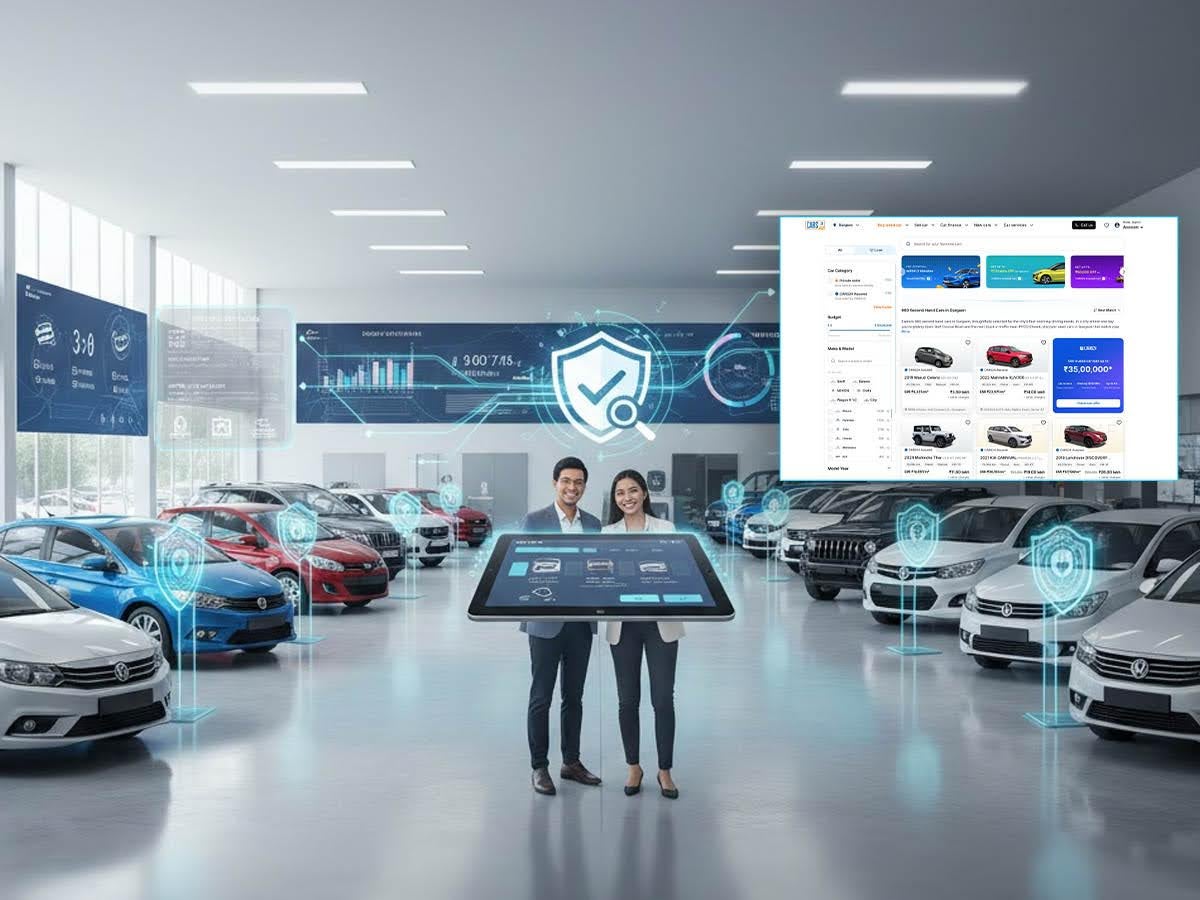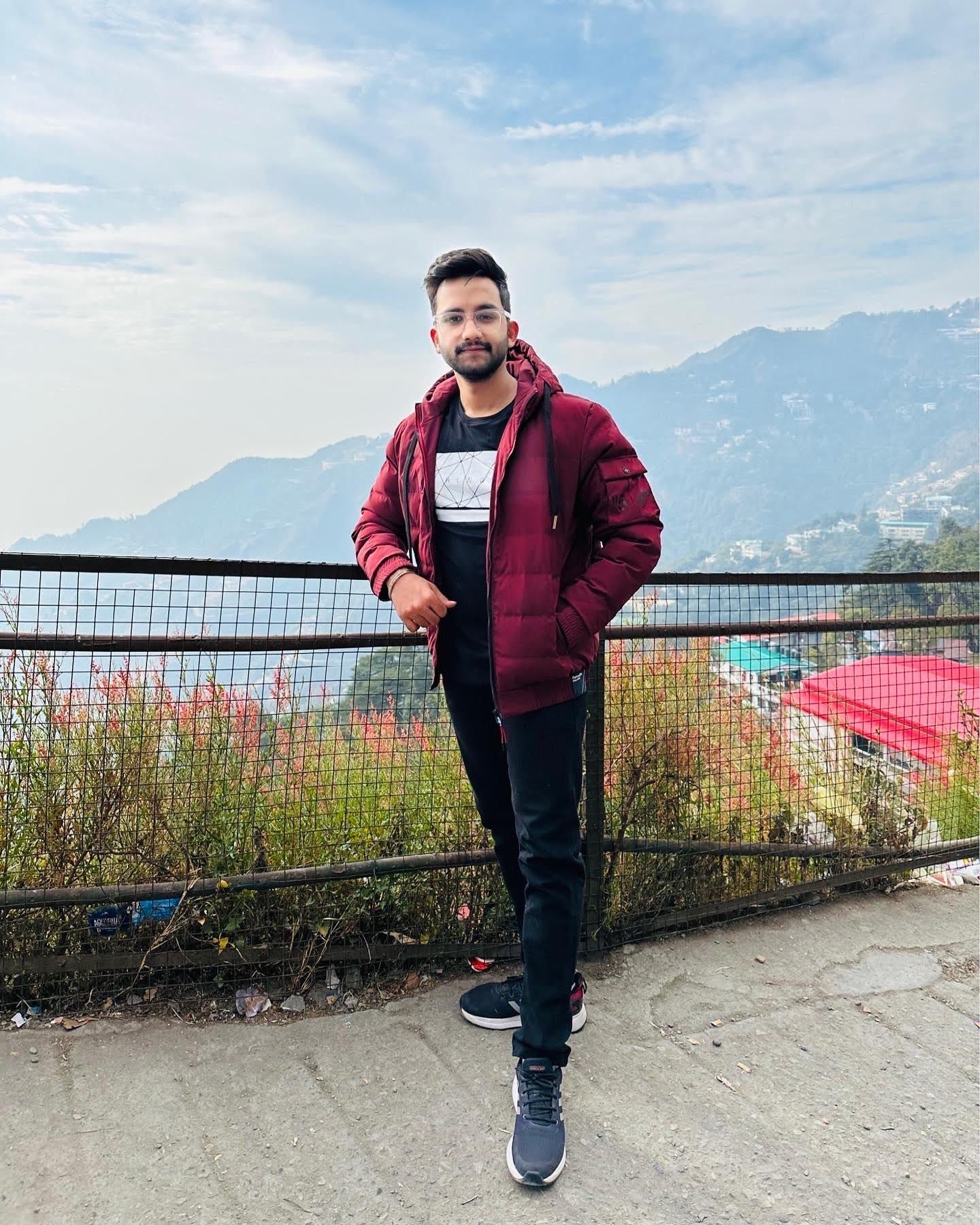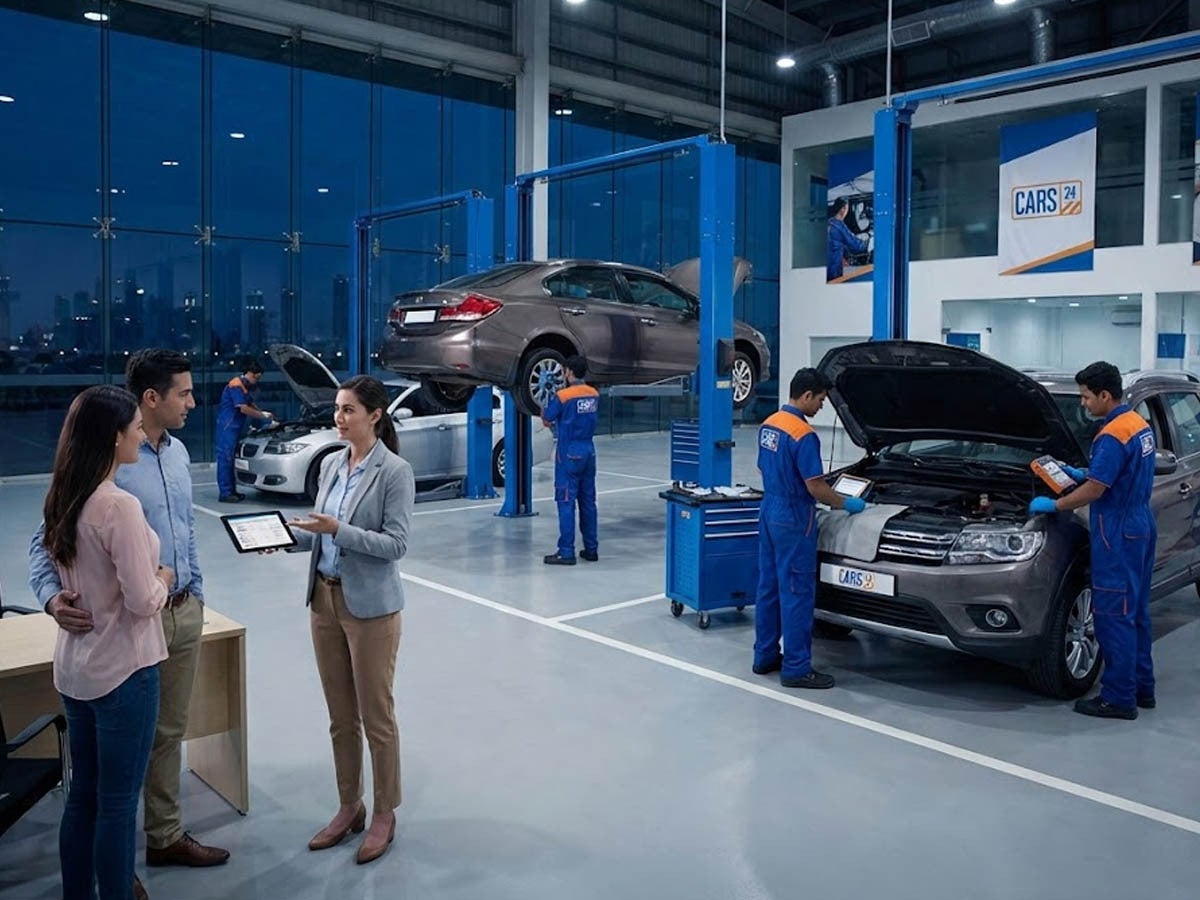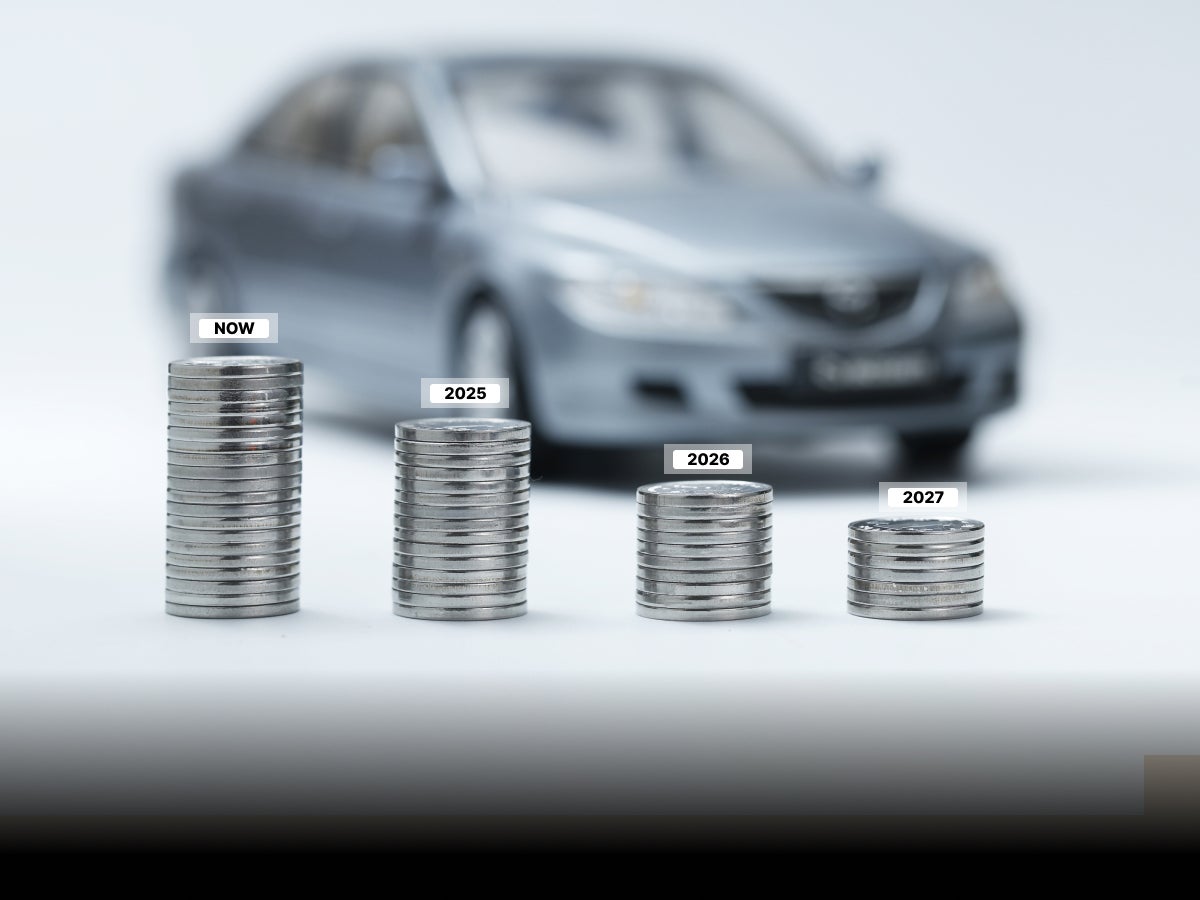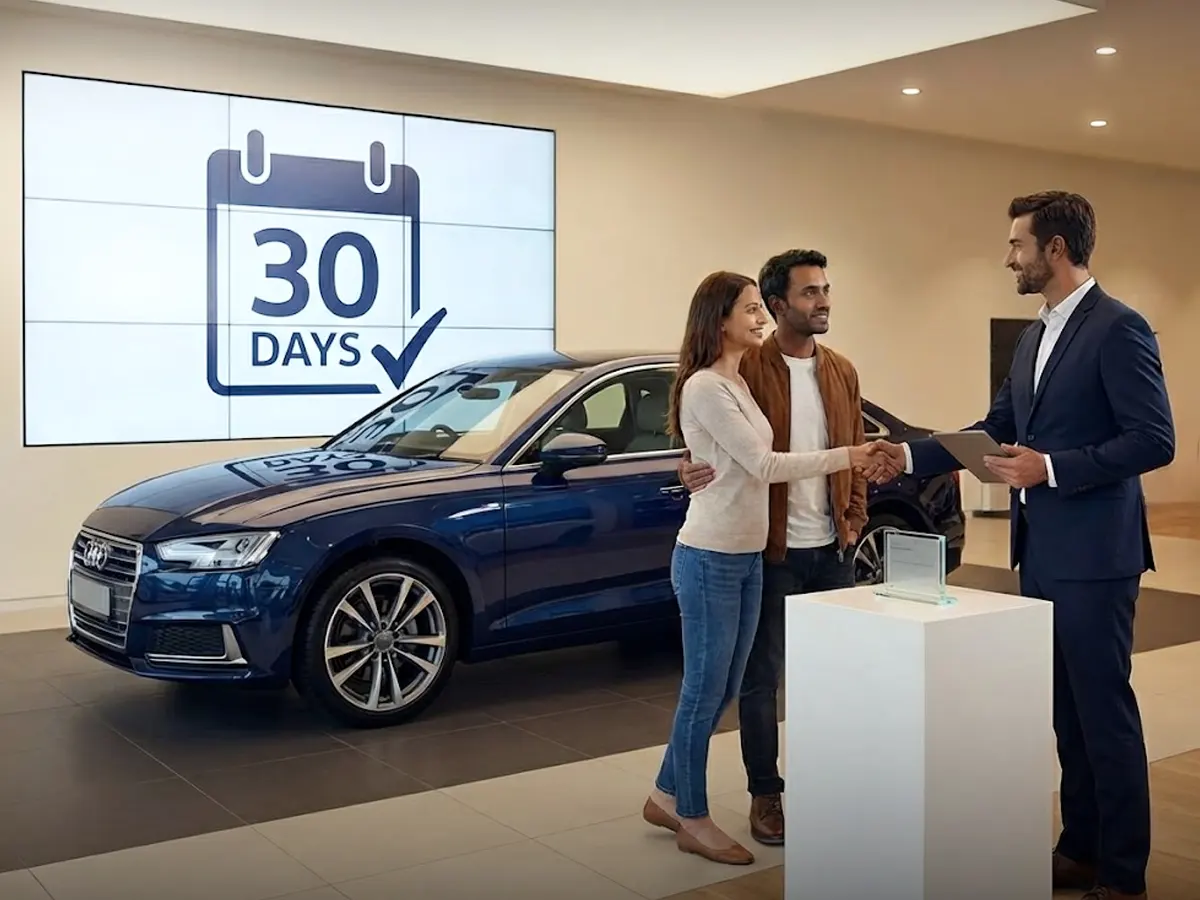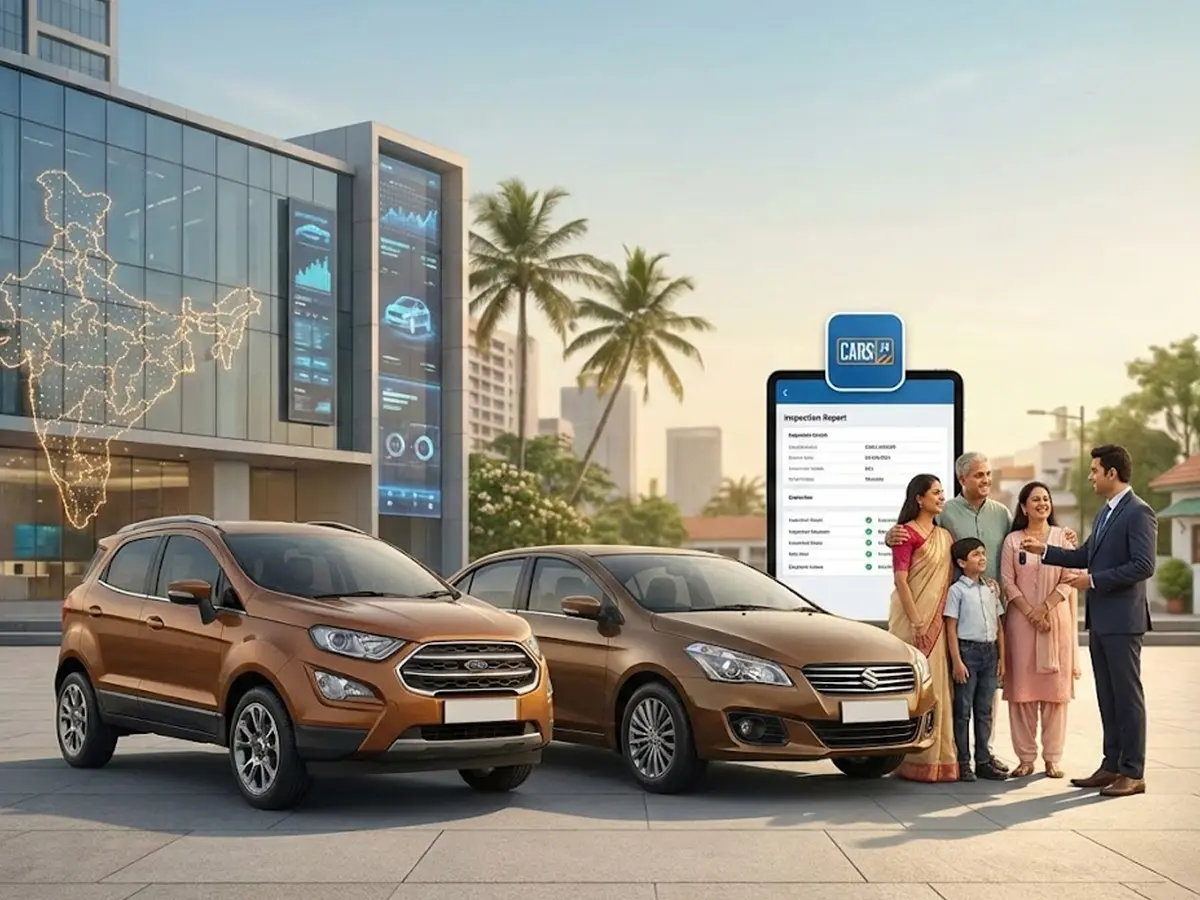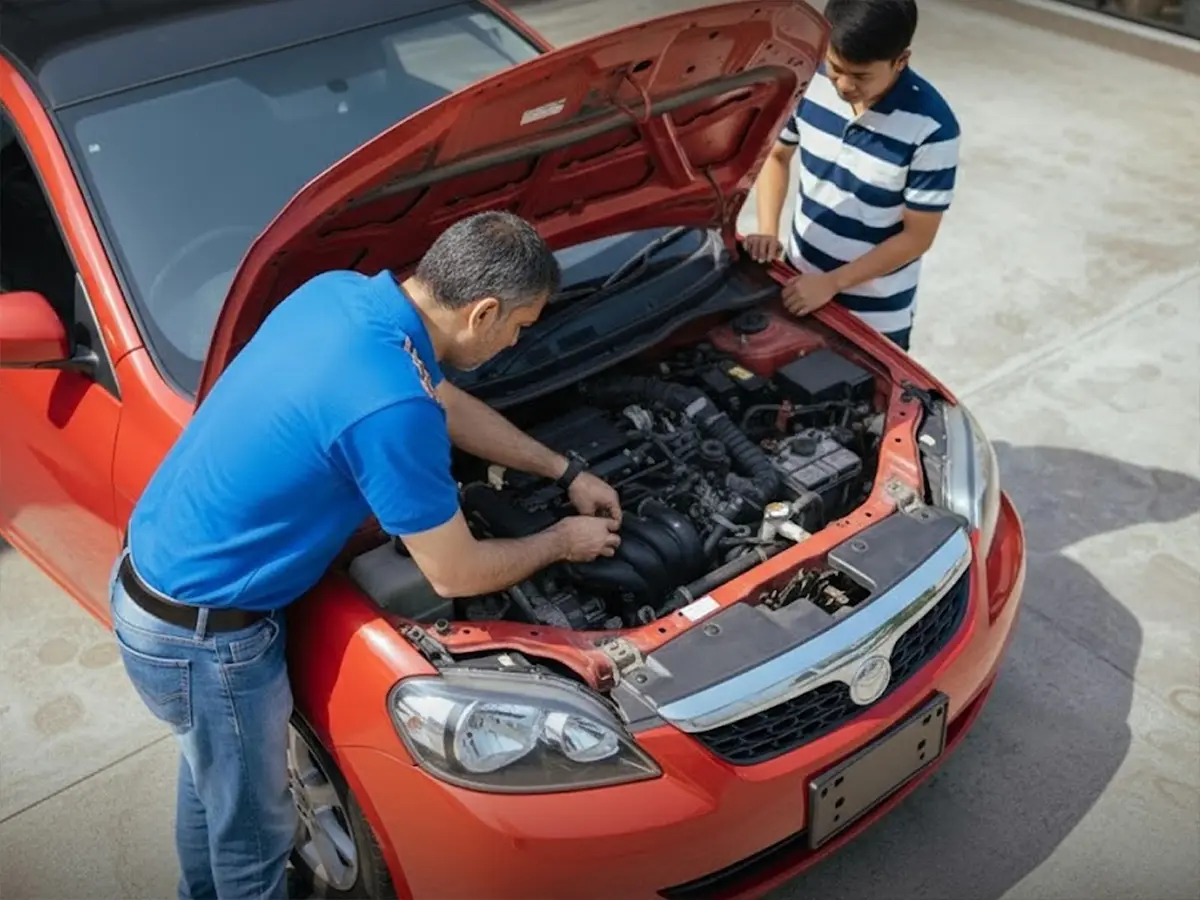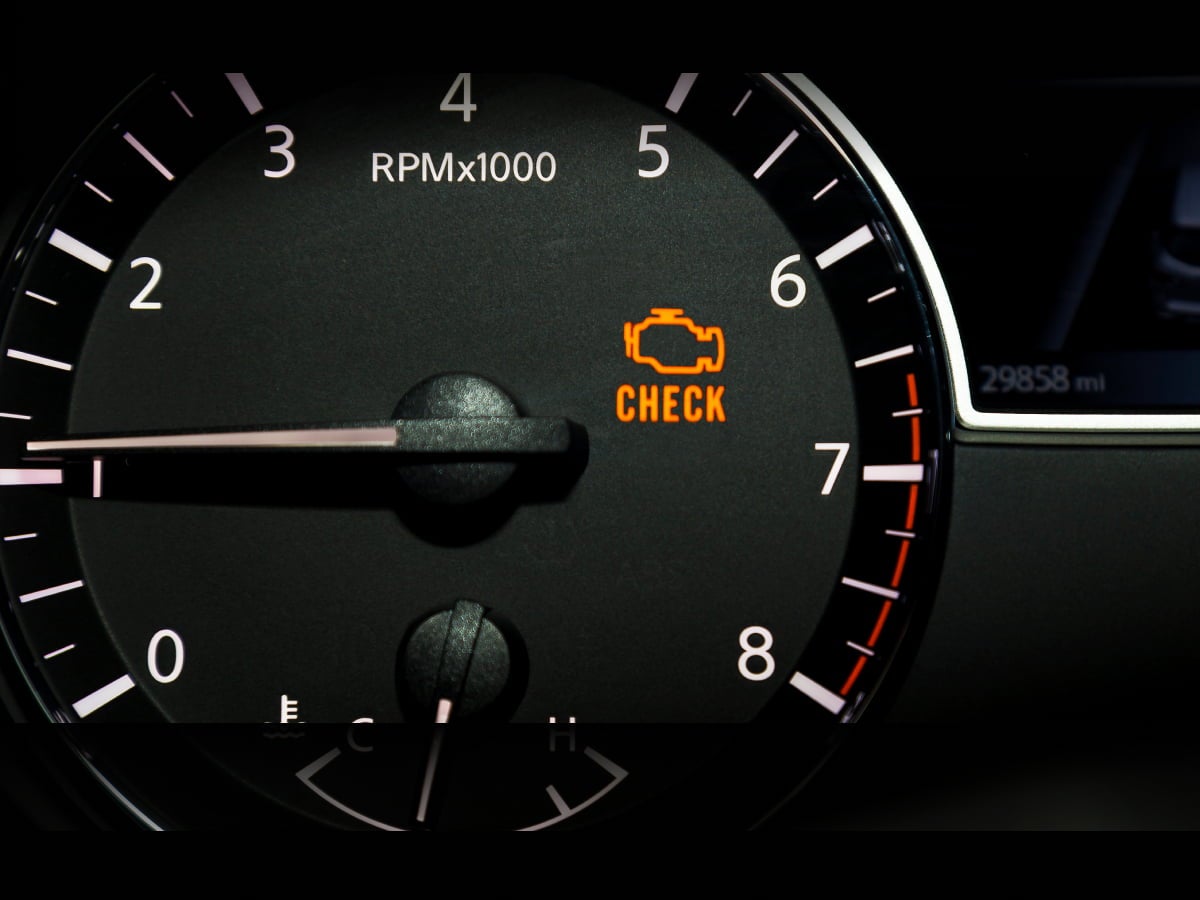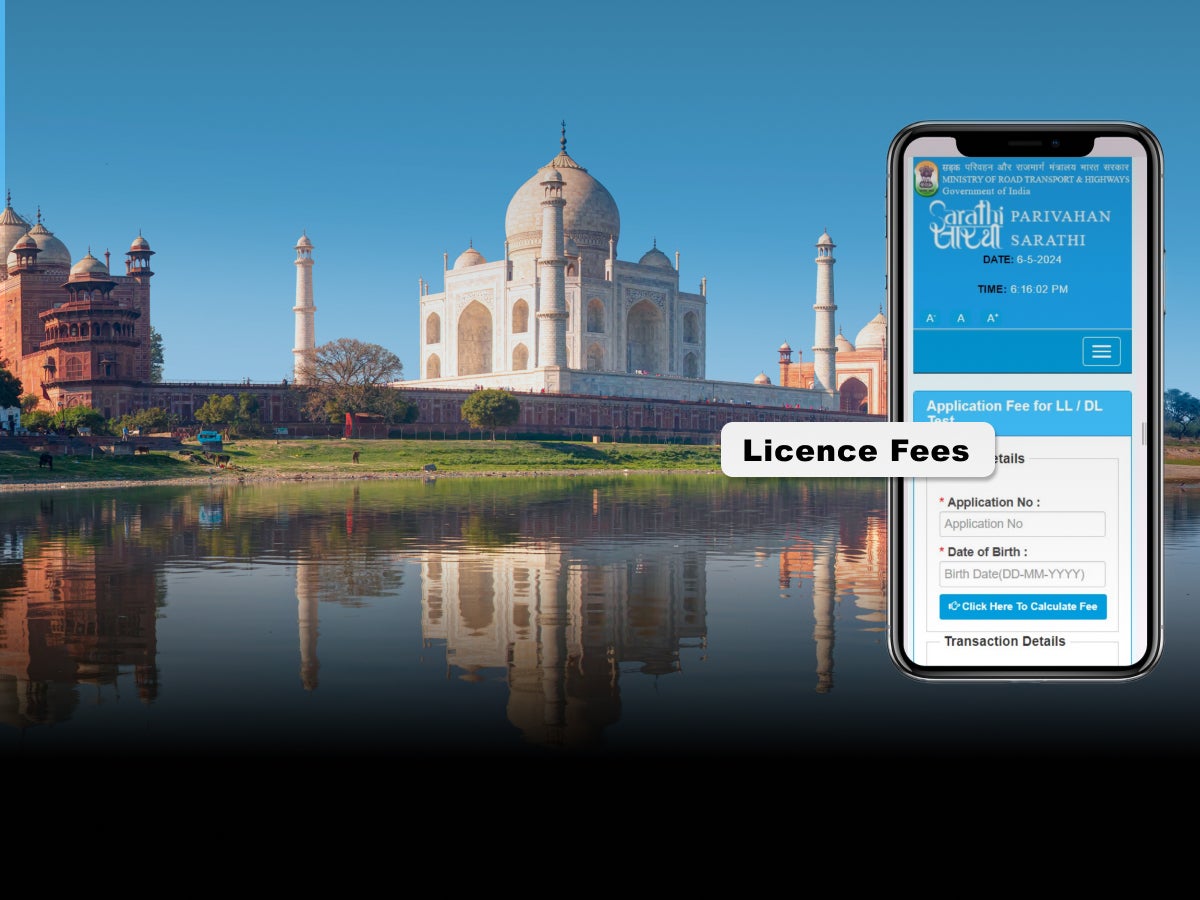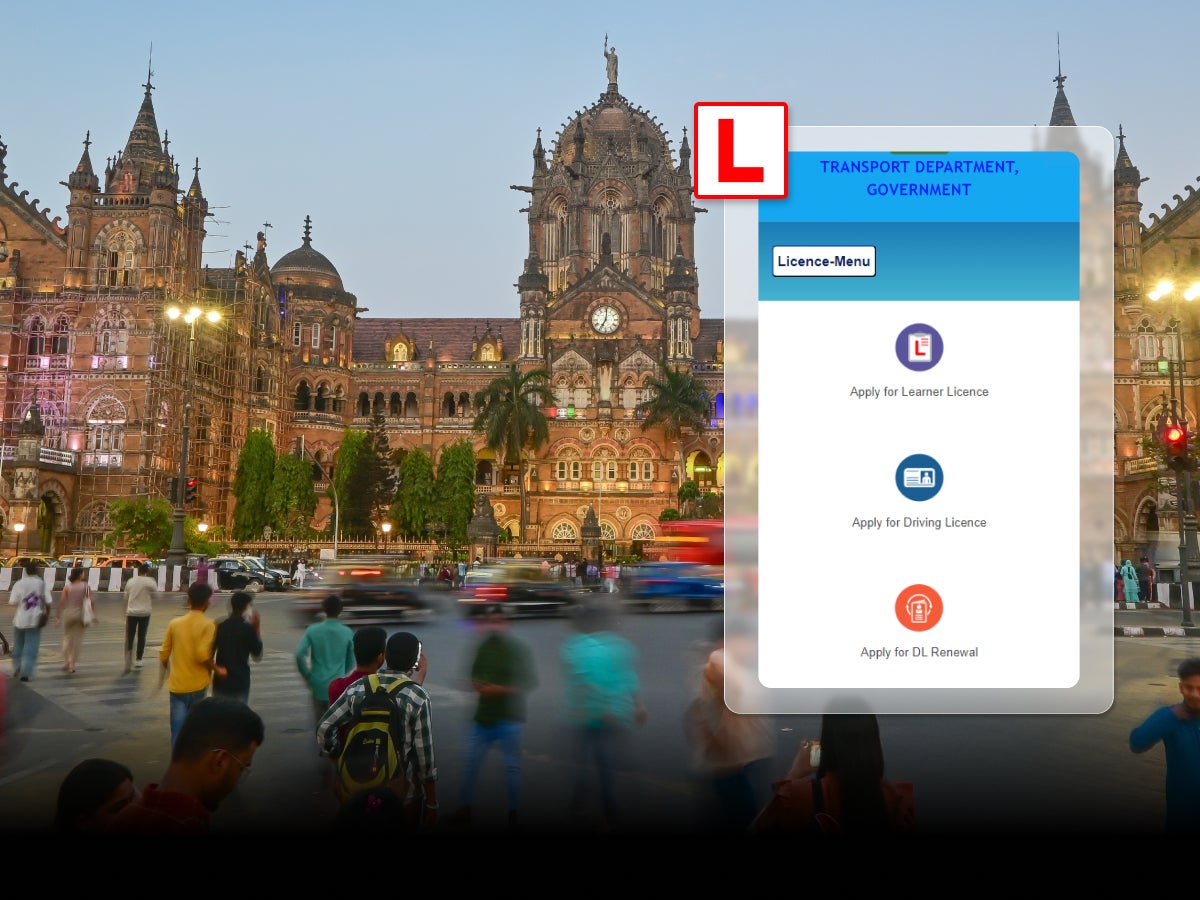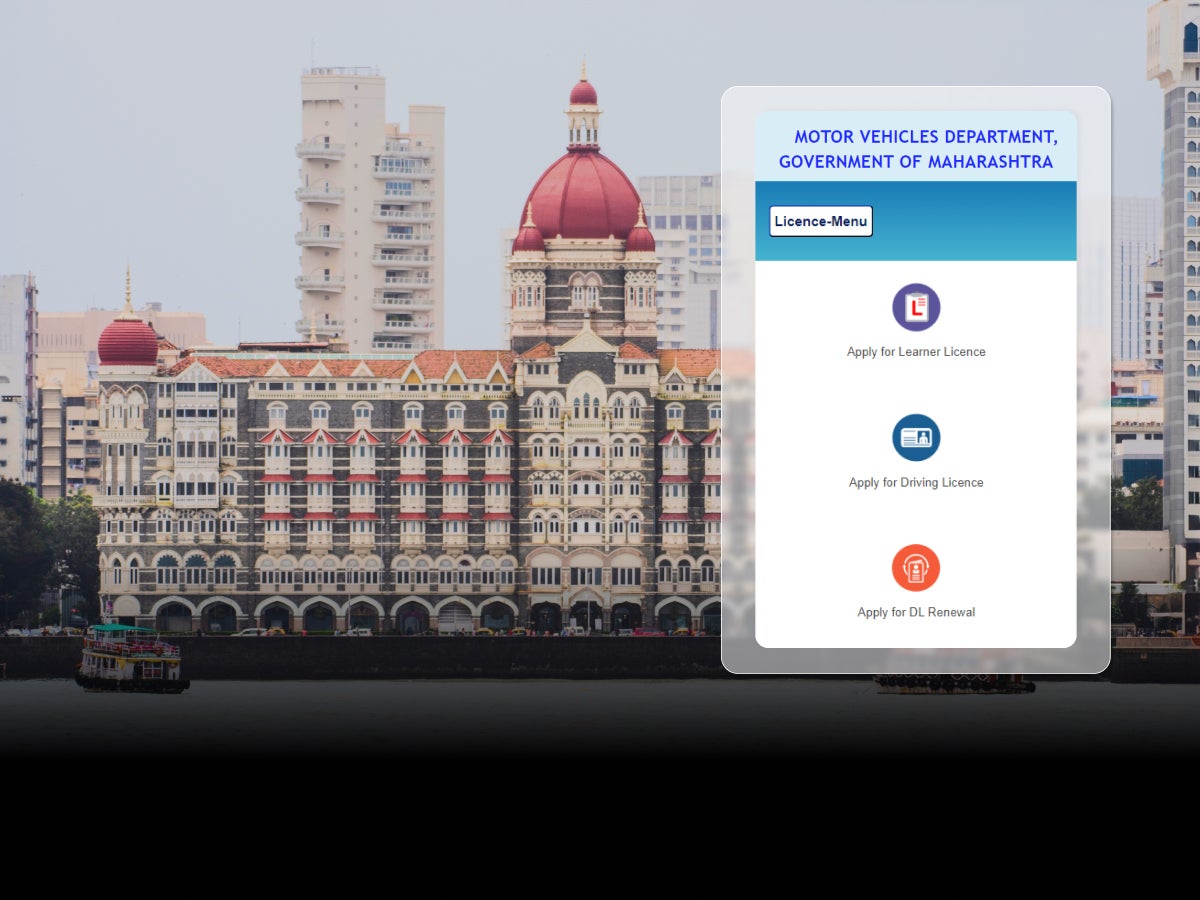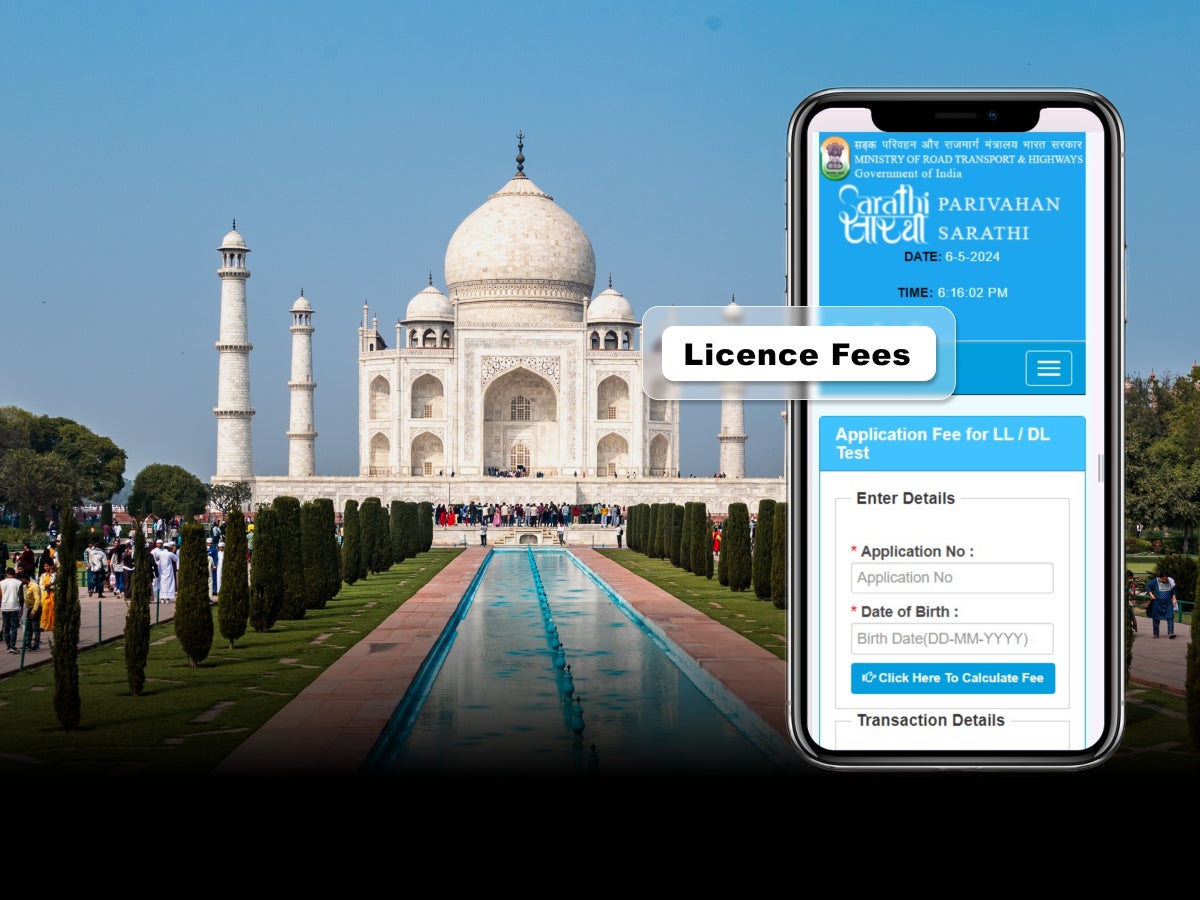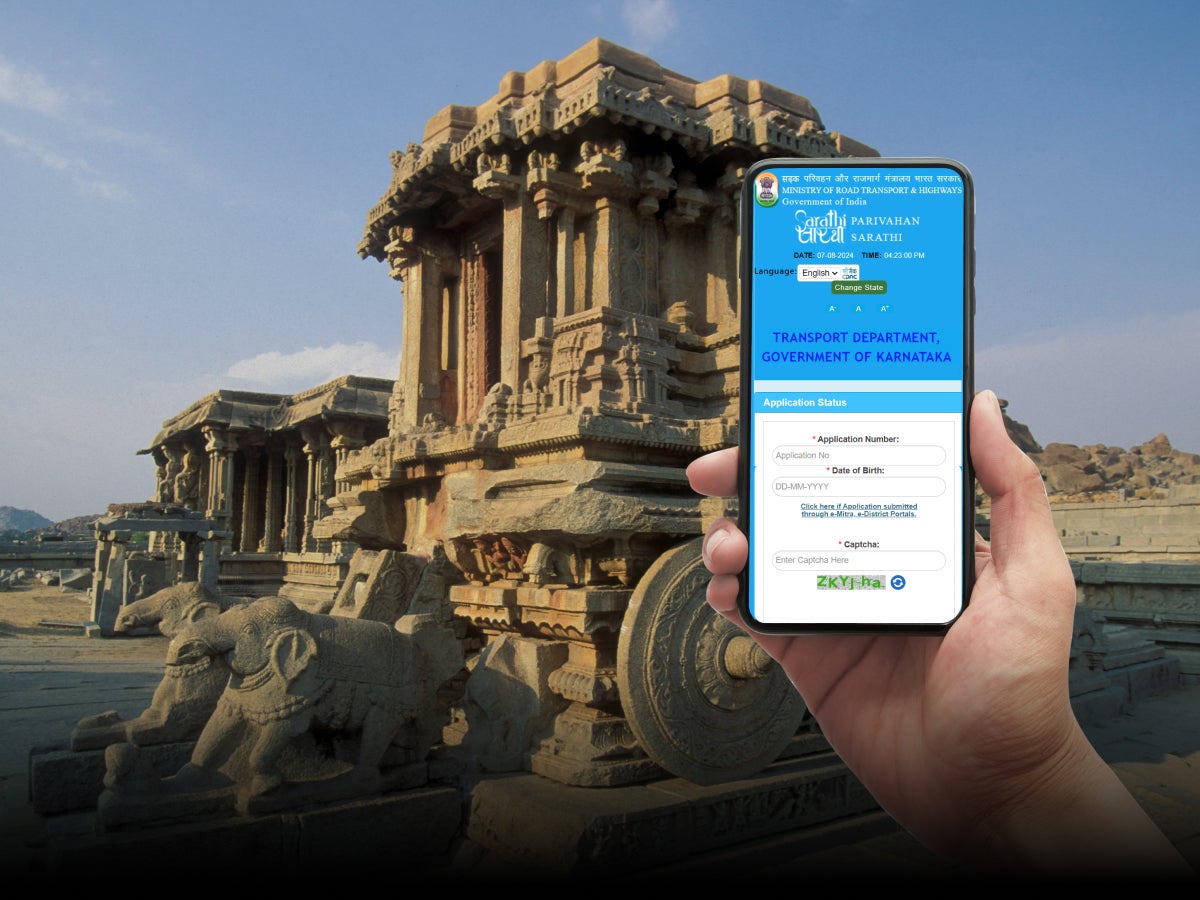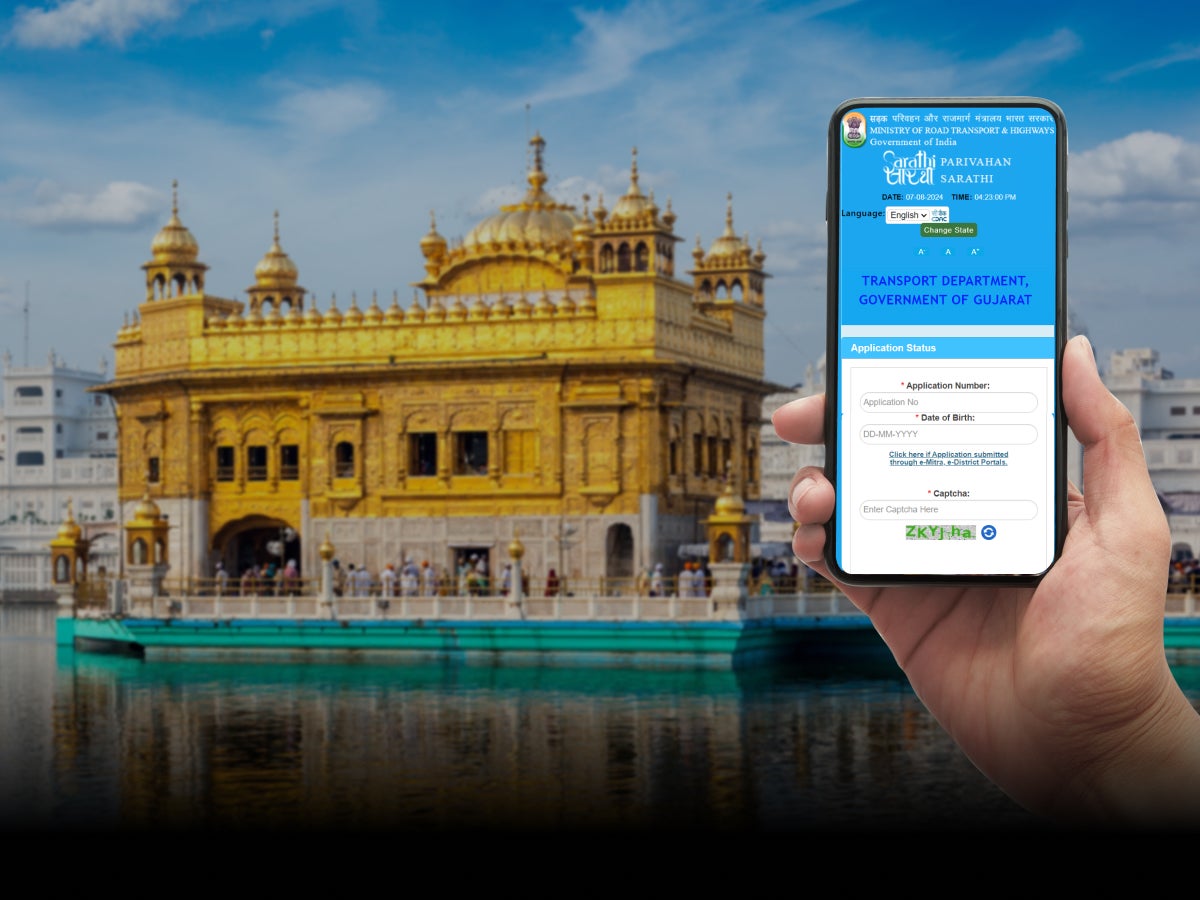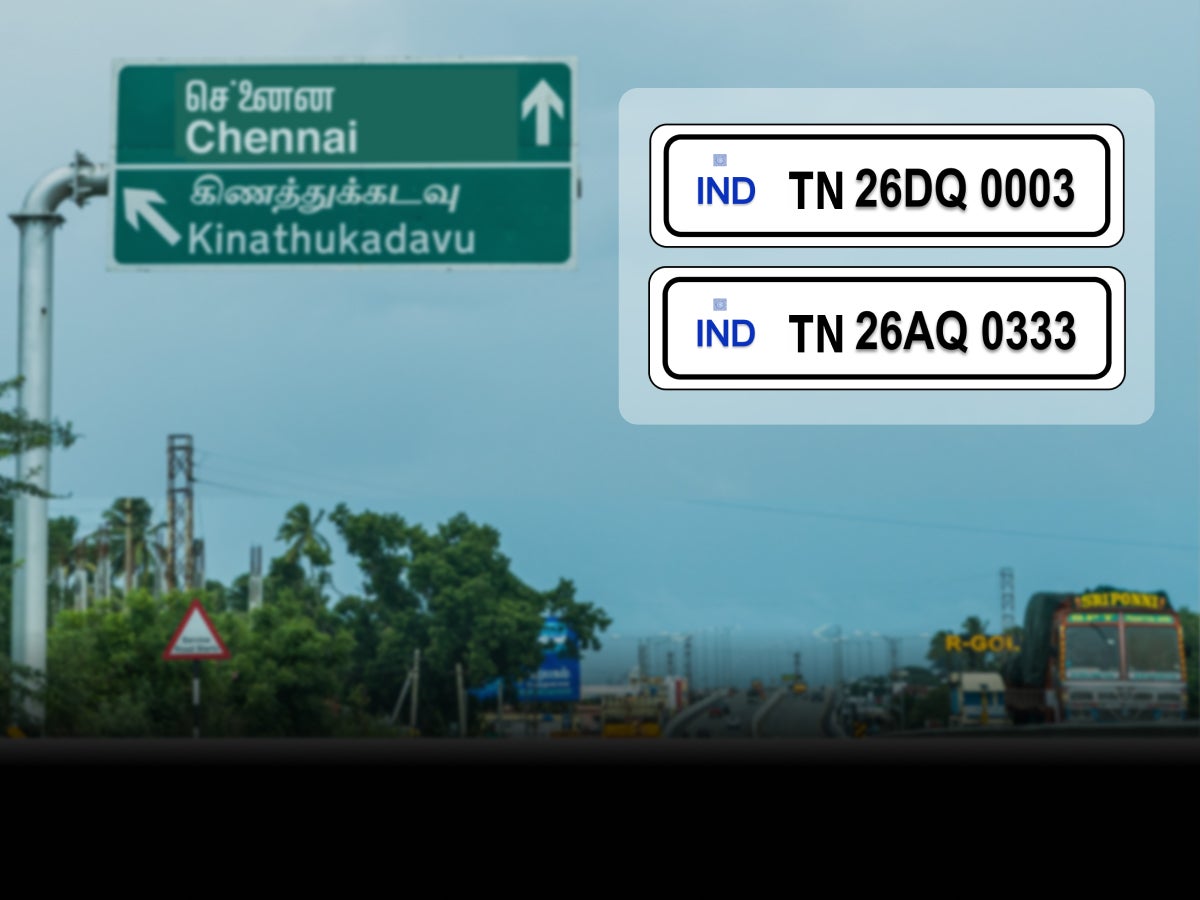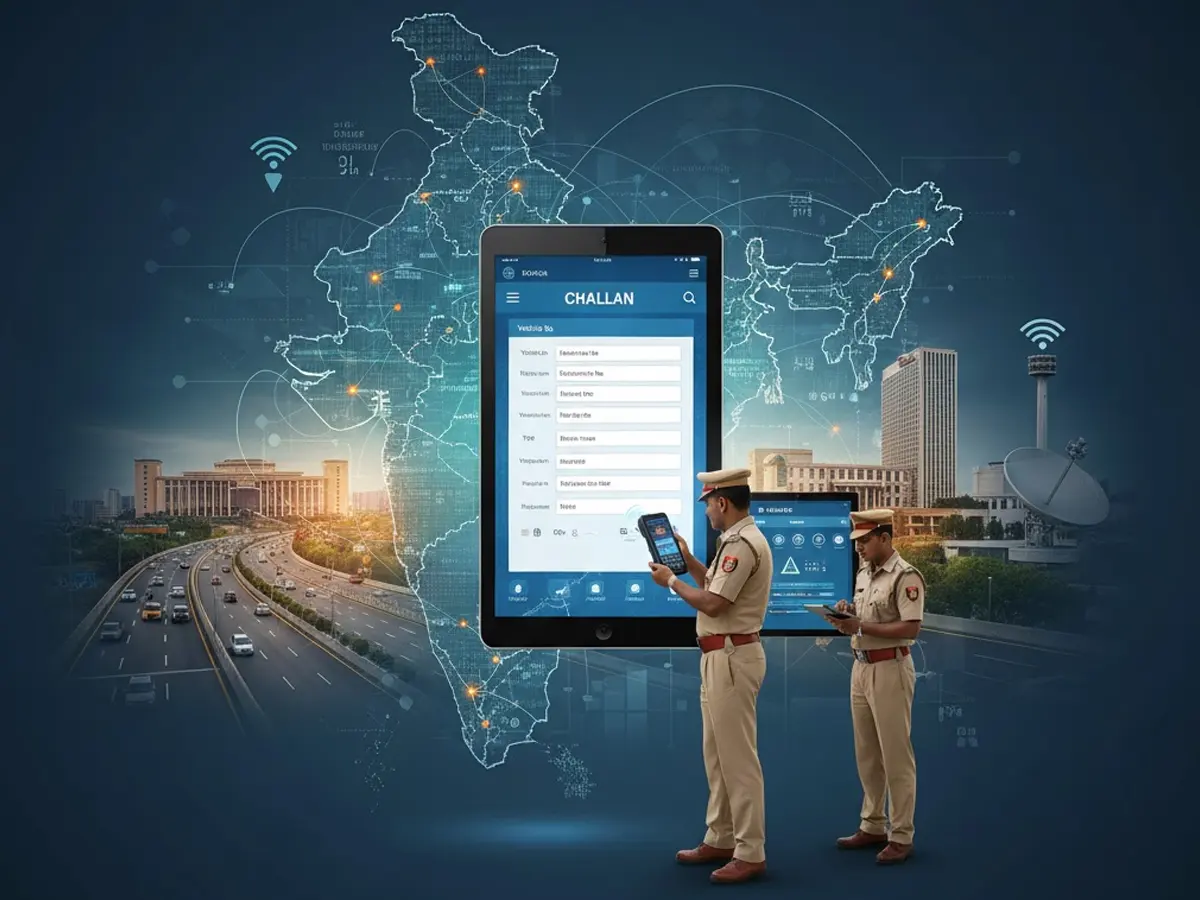

The One Nation One Challan (ONOC) Initiative: Digital Traffic Enforcement Across India
- 1One Nation One Challan connects police, RTOs and courts on one platform
- 2Gujarat is rolling out virtual traffic courts under ONOC
- 3Unpaid challans can now block RC transfers and licence renewals
The One Nation One Challan initiative is headed by the Ministry of Road Transport and Highways. Its aim is to make traffic fines enforceable throughout the country without the gaps in the past.
Earlier, many e-challan systems operated at the state level, and coverage varied across the country. ONOC corrects this by connecting challans with centralised databases such as VAHAN (vehicle ownership records) and SARATHI (driving licence records). Now every challan is linked directly to your RC and License, and can be viewed anywhere in India.
How Does the System Work?
The process is simple:
- Detection: Cameras or traffic officers record a violation
- Verification: Vehicle details are pulled from VAHAN and licence details from SARATHI
- Challan generation: An e-challan with the penalty is created automatically
- Notification: The fine is sent to the mobile number registered with your RC
- Escalation: If unpaid after 90 days, the case goes to a virtual traffic court
Virtual courts are online platforms that allow cases to be searched and fines to be paid online. Once payment is completed, the case is closed without needing to appear physically in court.
Why is One Nation One Challan in the News?
Recently, during a PIL hearing in the Gujarat High Court, the state government told the bench that it has already started setting up virtual traffic courts under the One Nation One Challan initiative. These courts will allow challan cases to be handled online, saving time and administrative costs.
This move reflects Gujarat's position as one of the earliest states to take active measures in implementing the complete ONOC model. The convergence of virtual courts with digital challans represents the transformation of enforcement from paper-based to a fully integrated system.
Why Was this Initiative Needed?
The earlier system had clear limitations:
- Though partial integration with Parivahan existed in some cases, many state-issued challans were not visible outside their own state
- Manual challan slips often got lost or ignored
- Unpaid fines created problems only at the time of RC renewal or transfer
With One Nation One Challan, these issues are being resolved:
- All challans are visible nationally
- Payments are digital and traceable
- Challans if left unpaid till the usual 60-day deadline, might be moved to the virtual court
Progress Across States
Different states are adopting the system at different speeds:
- Gujarat: Working on virtual courts under ONOC after the PIL update
- Telangana: Already strong in e-challan use, now aligning with national integration
- Delhi and Karnataka: Expanding CCTV coverage and linking data with VAHAN and SARATHI
Millions of e-challans are being raised and settled every month. ONOC is not yet consistent across India, but the trend is clear.
Early Wins and Challenges
Here are some early wins and challenges regarding the ONOC implementation:
Wins:
- Digital receipts act as permanent proof of payment
- Drivers cannot avoid challans by moving across states
- Compliance has improved in high-surveillance zones
Challenges:
- Wrong challans due to technical glitches are still reported
- Grievance handling is slow in many states
- Awareness about official portals is still low, leading to scam risks
What this Means for Drivers?
For everyday motorists, ONOC changes how fines are handled:
- All challans against your vehicle are now visible in one place
- Pending dues can block car resale or RC transfers
- Licence renewals may be delayed if fines are not cleared
For example, if you are a vehicle driver in Telangana, you can already check e challan online in Telangana through the state police portal, third-party platforms, or Parivahan to see how fines are displayed digitally.
The Road Ahead
For One Nation One Challan to work smoothly everywhere, authorities need to:
- Speed up integration across all states
- Strengthen grievance systems for wrong challans
- Educate drivers on official payment portals to avoid scams
- Provide clear rules on how unpaid challans affect licences and transfers
Summary
The One Nation One Challan initiative is the most ambitious traffic enforcement reform of India yet. With police, RTOs, and courts all on a single digital platform, challans are traceable to the vehicles across state lines and are no longer overlooked.
The initiative to establish virtual traffic courts under ONOC is an indication of how states are beginning to align and move towards this vision. While there are still issues with technical errors and slow dispute resolution, the system has the potential to provide transparency, accountability, and nationwide accessibility. It is always wise for drivers to regularly review challans, pay off dues promptly, and maintain clean records.
Frequently Asked Questions
Expand all